The world of science is changing fast as geopolitical tensions between east and west intensify. Science and technology organisations are less open to the world since Russia started the war in Ukraine, and China and the US engaged in a technology standoff.
This conference aims to provide insightful discussions on how security and defence developments profoundly impact research and development in the EU’s so-called Widening countries, and what policy responses are needed in order to safeguard the future of R&D in this region and beyond.
- Evolving Needs: The Widening countries, located primarily in central and eastern Europe, face significant threats to their research and development sectors. Not only could we see a diversion of resources towards defence spending in general, but the R&D investments could also be routed in that direction. There's also the pressing concern that the costs of research will increase, as cybersecurity breaches and other security challenges could require investments to fortify research infrastructures. This happens across the EU, but the impact is asymmetric in countries with below 70% of the EU GDP.
- Historical and Geographic Insights: The history and geographic position of the Widening countries play a pivotal role in addressing these new challenges. The region, with its rich historical context, has often been at the crossroads of major global events. It has unique insights to offer, borne out of its past experiences in dealing with both security threats and opportunities. Furthermore, given the region's proximity to these new areas of conflict, it now finds itself on the frontline of emerging security challenges. This places the region in a prime position to gain first-hand experiences and a more acute understanding of these new threats. By leveraging its historical insights and frontline perspective, the region can contribute valuable knowledge to addressing security challenges across the EU.
Our conference seeks to bring together experts and stakeholders from both within and outside the region to explore this dynamic landscape. Together, we aim to debate policies and strategies for adapting to the new geopolitical circumstances and shape the future of R&D in the face of growing security and defence threats across the EU.
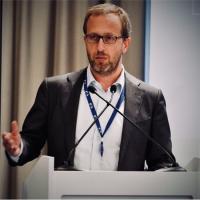
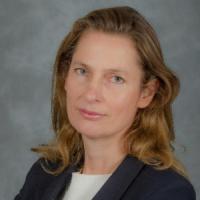
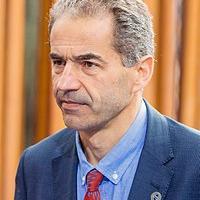


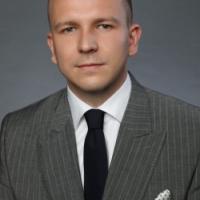

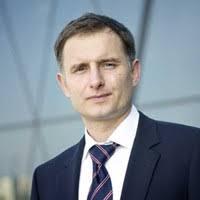



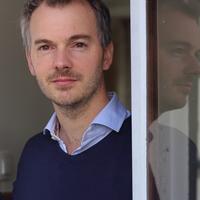
13:30 Registration and welcome coffee
14:00 Opening remarks
- Edit Herczog, Senior Advisor, Science|Business
- Manuel Heitor, Professor, Instituto Superior Técnico, Technical University of Lisbon; Former Minister for Science, Technology and Higher Education, Government of Portugal
14:10 Session I: The horizontal approach
A panel discussion on the threats these countries are facing, how they are preparing the research sector for new challenges (including the cost of security), and how science diplomacy is changing.
Speakers:
- Nicolas Bessot, Head of Unit, DG Migration and Home Affairs, European Commission
- Slaven Misljencevic, Policy Officer, DG Research and Innovation, European Commission
- Mira Yossifova, Director, Politics and analysis, Ministry of Innovation and Growth, Government of Bulgaria
- Egita Aizsilniece-Ibema, Head of Brussels Office, Investment and Development Agency of Latvia
- Dawid Kostecki, Director, National Agency for Academic Exchange, Poland
15:00 Coffee break
15:30 Lessons from history: Q&A session with Léonard Laborie, Research Fellow, CNRS
15:50 Session II: Critical sectors for boosting EU resilience
A panel debate on the EU's strategic emphasis on critical sector in the new defence context. Key topics:
- Fostering collaboration: Explore the integration of security and research within the EU's strategic agenda.
- The role of social research in conflict mitigation: Delve into the significance of social research in addressing and mitigating the traumas and fears associated with conflict.
- Addressing interference: Gain insights into the growing spread of fake news in the region.
- Building resilience in the key sectors of food, health, energy, and digital: Examine the pivotal role these sectors play in strengthening the EU's resilience against emerging security challenges.
Speakers
- Nynke Tigchelaar, Head of Unit, European Defence Fund Implementation – Defence Technologies and Innovation, European Commission
- Tomas Žalandauskas, Chief Executive Officer, Baltic Institute of Advanced Technology
- Ingvill Constanze Ødegaard, Professor, University of Oslo; Senior Researcher, GESIS
- Tiit Lukk, Vice Rector, Research and Development, Tallin University of Technology
- Ivonne Herrera, Senior Scientist, Research Institute NSR, NTNU Social Research
16:50 Closing remarks
17:00 Networking reception
Press Club Brussels, Rue Froissart 95, 1040 Brussels
For more information, please contact Denitsa Nikolova at [email protected]
Partners


 A unique international forum for public research organisations and companies to connect their external engagement with strategic interests around their R&D system.
A unique international forum for public research organisations and companies to connect their external engagement with strategic interests around their R&D system.